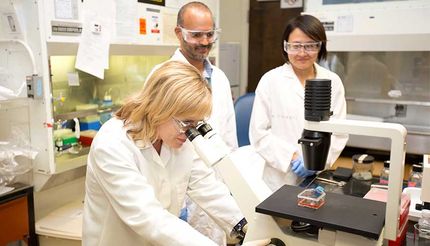Emerging technologies redefine infectious disease diagnostics
The largest opportunities lie in the developing regions of Asia, Africa and Latin America
The diagnostics market for infectious diseases such as tuberculosis (TB), human immunodeficiency virus (HIV), hepatitis C virus and human papilloma virus is expanding, giving rise to commercial opportunities especially in the developing economies of Asia, Africa and Latin America. The urgent measures taken by governments to minimize healthcare expenditure, owing to both economic and political pressures, are driving the demand particularly for high-throughput automated diagnostic platforms and point-of-care testing devices.
New analysis from Frost & Sullivan, Emerging Technologies in Infectious Diseases Diagnostics, finds that the market is characterised by the constant introduction of improved devices and technologies due to their short lifecycle. For instance, new molecular technologies for the screening of drug-resistant TB are replacing culture-based tests, which are slow, require experienced personnel, and need stringent microbiological safety precautions.
“Startup companies are developing diagnostic technologies from a vast array of sources and disciplines, which is giving rise to new kinds of diagnostic devices,” said Technical Insights Research Analyst Geethu Roshan Verghese. “This is the case for molecular diagnostic technologies, where a variety of technology disciplines has converged to create enabling technology platforms that can address factors like low cost and point-of-care usage”.
Sustainable local manufacturing of infectious diagnostic products still remains a challenge for emerging nations. Not only does it require adequate skills and infrastructure at each stage of the process but also a conscious assessment of quality, safety and regulatory issues. Funding is another challenge. Despite its crucial role in disease control, diagnostics research for infectious diseases receive surprisingly little funding in comparison with other areas of translational research such as drug and vaccine development.
Research to build diagnostic tests along with a robust detection system also needs predictive markers to be identified and validated. Such a process demands multidisciplinary research groups ranging from life scientists for biomarkers discovery to physicists and engineers for instrument design. In this regard, new business models associated with commercial health management are emerging, and partnerships and alliance models seem to be the best way forward.
“Multinational companies providing complete diagnostic service packages to both public and private sector clinics and hospitals are becoming a common trend,” said Technical Insights Senior Research Analyst Cecilia Van Cauwenberghes. “With a significant bulk of procurement contracts resting with testing companies, such giants hold a major grade of influence on market trends, and hence, can help expand the footprint of their innovations in developing countries.”
Topics
Organizations
Other news from the department business & finance

Get the life science industry in your inbox
By submitting this form you agree that LUMITOS AG will send you the newsletter(s) selected above by email. Your data will not be passed on to third parties. Your data will be stored and processed in accordance with our data protection regulations. LUMITOS may contact you by email for the purpose of advertising or market and opinion surveys. You can revoke your consent at any time without giving reasons to LUMITOS AG, Ernst-Augustin-Str. 2, 12489 Berlin, Germany or by e-mail at revoke@lumitos.com with effect for the future. In addition, each email contains a link to unsubscribe from the corresponding newsletter.























































